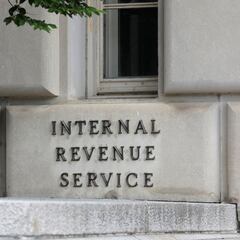How many Americans could receive an unemployment tax break this year?
Some of the millions who filed a 2020 tax return and reported unemployment assistance payments will begin to see refunds appear in bank accounts this week.

Last week the Internal Revenue Service (IRS) announced that it would begin issuing refunds to eligible taxpayers who paid taxes on 2020 unemployment compensation. Over 10 million had filed a tax return before the American Rescue Plan was enacted providing unemployment tax break.
The IRS will send refunds to taxpayers who because of the new tax waiver on jobless aid overpaid their taxes this year. The agency is processing tax returns reporting unemployment benefits in two phases which will continue through the summer. It will start with the simplest to recalculate, individual taxpayers who did not claim children or any refundable tax credits. The second phase will be for tax returns from married couples filing jointly and more complex returns.
Also see:
- Those on unemployment could see more money back this tax season
- Almost half of states have announced an end to additional unemployment benefits
- How to track your IRS unemployment refund
- When to expect your tax refund in 2021
How many people could get the unemployment tax break?
The exact number of taxpayers that will receive the tax exclusion is not currently known but in a US Treasury inspector report of interim results of the 2021 tax filing season, as of 4 March of the 7.4 million that had filed a 2020 tax return reporting unemployment compensation almost 99 percent would likely qualify for the tax waiver.
Around 40 million people received unemployment benefits in 2020 according to the Century Foundation. In order to be eligible for the tax exclusion individuals and married couples filing jointly must have a modified adjusted gross income (AGI) of less than $150,0000 to claim the waiver, the amount does not double for married couples. The tax break is only applicable to unemployment compensation received in 2020.
Many will be looking forward to a tax refund if they ended up paying the IRS for taxes owed on their unemployment benefits. However, that might not necessarily be the case. Here is why.
#IRS is correcting tax returns for unemployment compensation income exclusion; payments are being issued May through summer: https://t.co/hcqbFq5oZe pic.twitter.com/PSgSKe7vzP
— IRSnews (@IRSnews) May 18, 2021
IRS correction “could result in a refund, a reduced balance due or no change to tax”
The American Rescue Plan, which included the tax exclusion on up to $10,200 of unemployment benefits received in 2020 per person, was passed in March with the 2021 tax filing season well underway. The IRS, to ease the burden on taxpayers and avoid people refiling, advised those who had reported unemployment compensation not to file an amended tax return, that the agency would review tax returns and correct for the new waiver. This process, the IRS said, “could result in a refund, a reduced balance due or no change to tax.”
Even if a taxpayer is due a refund, that money could be scooped up by the Treasury Offset Program (TOP), which can seize tax refunds to pay debts owed to federal or state agencies. The IRS advised taxpayers that refunds resulting from the tax waiver are subject to normal offset rules. These debts could include overpayments of unemployment benefits, child support or spousal support, along with any state or federal taxes. The offset program will not currently reduce the amount of a refund to pay arears on student loans, the moratorium on payments and interest is in effect until 30 September.
The IRS will be informing taxpayers of the corrections made to their tax return within 30 days of the adjustments. A separate letter will be sent if a refund is offset to pay unpaid debts.
IRS2Go, the official #IRS mobile app, is available in both English and Spanish. Download it today as you #GetReady for filing season: https://t.co/jqXsBGvn48 pic.twitter.com/mQZ32CWmCk
— IRSnews (@IRSnews) May 19, 2021
Married couples can have a tax break of up to $10,200 each
The tax break on 2020 unemployment compensation allows taxpayers to exclude up to $10,200 per person. So, a married couple filing jointly could foreseeably get up to $20,400 subtracted from the jobless assistance they received last year, however the math isn’t straightforward.
The IRS gives the example of one spouse having received $5,000 of benefits and the other getting $20,000. The total amount is $25,000 but the couple would not be entitled to the full $20,400 waiver but only $15,200. The spouse that got $5,000 in compensation gets the whole amount waived, but the second spouse only gets $10,200 of the $20,000.
Should I amend my return?
Related stories
The IRS told taxpayers not to file an amended return unless the recalculation would make the taxpayer newly eligible for additional federal tax credits and/or deductions that hadn’t been included on the original tax return.
Certain tax provisions can only be claimed based on a filers AGI along with other requirements. One tax credit in particular the IRS specifies is the Earned Income Tax Credit (EITC). Taxpayers who claimed the EITC will have their returns automatically adjusted, but the agency recommends filing an amended tax return for those who did not originally claim the EITC or other credits but now are eligible because the exclusion changed their income.


